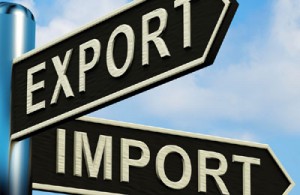Obstacles to Trade
 A few eyebrows were no doubt raised when the Prime Minister said on television news last week that his four or five-day visit to the Gulf – unsuccessful though it proved to be – was a better use of his time than spending the same time in Wellington.
A few eyebrows were no doubt raised when the Prime Minister said on television news last week that his four or five-day visit to the Gulf – unsuccessful though it proved to be – was a better use of his time than spending the same time in Wellington.
We should not perhaps have been surprised at the Prime Minister’s order of priorities. Third-term leaders across the globe often find that the opportunity to stride the global stage is a welcome boost to the ego and an equally welcome diversion from the tedious business of domestic politics.
And, as John Key pointed out, his goal – a free trade agreement with the Gulf States – was, although unattainable for the present, a prize worth seeking. When a prize of that kind is won, as was the case a few weeks ago in the case of South Korea, the dollar value of the deal is immediately talked up. The Korean deal was said to be worth $65 million in its first year, and much greater figures are of course attached to a possible “success” in the talks aimed at a Trans Pacific Partnership Agreement.
Let us put to one side arguments about the price that we might have to pay for such arrangements and acknowledge that no one could fail to welcome the boost to our trade as the result of the removing tariffs in our export markets. But this still leaves a major puzzle about the Prime Minister’s and the government’s attitude on such matters.
If reducing tariff barriers against our exports so that we can sell at more competitive prices in individual markets is so beneficial, and so easily quantifiable in terms of the boost to our economy, why are we so relaxed about the tariff we impose on ourselves – not just in respect of particular markets but in every market, including our own, and on everything we try to sell?
If, as is widely accepted, our dollar is over-valued, and has been for a very long time, that simply means that we are charging too much for our goods and service in export markets – and, for that matter in our own market when we are competing against foreign imports. We ask buyers, in other words, to pay 20% more than the goods are really worth. We are in effect demanding a premium, or imposing a tariff, on our own goods. And if a tariff of, say, 20% in an export market damages our trade, then that trade is equally damaged by an over-valuation of 20%. And over-valuation applies of course across the board, and not just – as a tariff does – to particular products in a particular market.
So, if we can so easily calculate the benefits of reducing tariffs, why cannot we apply the same calculation to the benefits of reducing the over-valuation? If the Prime Minister finds it worthwhile to travel the globe in search of the odd success in getting deals to reduce tariffs on particular goods, wouldn’t it be worthwhile him staying at home for a few days to work out ways that we can escape from the damaging over-valuation treadmill?
As it happens, we don’t need to be statistical whizzes to work out the cost of over-valuation. We can make an initial estimate by looking at our continuing failure to pay our way in the world. We have run a perennial trade deficit – that is, buying more from overseas than we sell or, in other words, consuming more than we produce. It is that deficit, and not the government’s, that really measures how well we are doing.
That trade deficit is now on the rise again, as happens every time we have a consumer-led boom, and as our over-valued products fail to keep pace with cheap imports. We are rapidly heading back to danger territory, when we could spend up to five cents in the dollar more than we earn; and when we need to cover the shortfall by increased borrowing and selling assets, that represents a typical rake’s progress that cannot be sustained.
The longer it goes on, the worse it gets. Every time we borrow more, at high interest rates, the cost of repayment increases. And every time we sell off assets to foreign buyers, the greater the size of the income stream we lose as profits are paid into foreign hands – and, of course, the less control we have over our own economy.
Yet the government, and most New Zealanders, seem completely unconcerned, and in most cases completely unaware, that this is our true situation. And it is not just the direct cost of the trade deficit that penalises us. The fear that the trade deficit will get completely out of hand and can no longer be financed by borrowing means that we are frightened to grow as fast as we could and we fail to diversify and invest in new capacity – as witness our increasingly dangerous dependence on the unreliable price of a single commodity.
Wouldn’t a few days’ attention to these issues, rather than knocking one’s head against Saudi intransigence, be a good use of time?
Bryan Gould
2 May 2015

